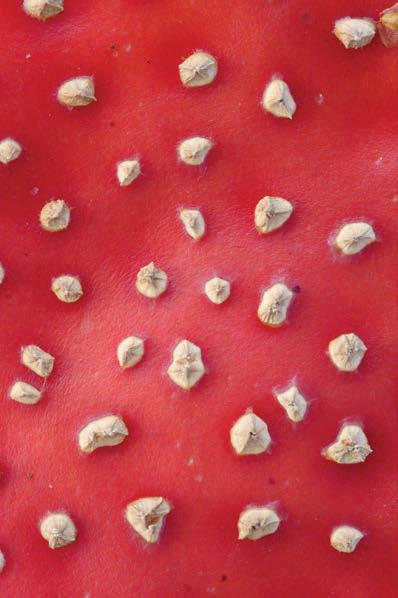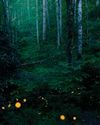
1 Get creative
Macro photography and shallow depth of field go hand in hand, but this needn’t be a problem if you approach the out-of-focus areas of your image with an air of curiosity and possibility. A wash of colour behind a plant can create a beautiful, painterly effect, for example.
2 Do the splits
If, like me, you started out using a film SLR, you will be familiar with the idea of using a split focus screen. Imagine my joy when manufacturers started to include this as an option in digital cameras! Simply switch to live view, select the split-image focusing aid and rotate the focusing ring until the separate parts of the image line up. It’s so satisfying!
3 Hit the ground
Just like wildlife, plants often look great when you get down to their level, so wear waterproof trousers and use a garden kneeling pad. While some tripods allow you to get down low, I find a beanbag can be useful. (I know one photographer who uses a swimming armband as a camera support!) You can buy beanbags empty or filled, but make sure the material is waterproof, and the filling won’t hold moisture (Wildlife Watching Supplies has a great selection).
4 Get some support
When the zone of focus is seriously limited, even the slightest movement of the camera will result in the subject falling out of focus, so invest in a decent tripod (preferably one with a central column that can be positioned at 90°) and use it! If you’re worried about carrying the extra weight, think carbon fibre and buy a strap to hold it over your shoulder (Op/ Tech has a good range).
Denne historien er fra April 11, 2023-utgaven av Amateur Photographer.
Start din 7-dagers gratis prøveperiode på Magzter GOLD for å få tilgang til tusenvis av utvalgte premiumhistorier og 9000+ magasiner og aviser.
Allerede abonnent ? Logg på
Denne historien er fra April 11, 2023-utgaven av Amateur Photographer.
Start din 7-dagers gratis prøveperiode på Magzter GOLD for å få tilgang til tusenvis av utvalgte premiumhistorier og 9000+ magasiner og aviser.
Allerede abonnent? Logg på

Major OM System launch incoming
AT THE beginning of January, OM System announced that a new camera was coming this year, along with compact, splash- and dust-proof lenses.

Urth Variable ND641990 Filter Plus+
Angela Nicholson takes a close look at a high-end variable neutral density filter from Urth

Canon EOS R1
It's super-fast and super-expensive, but does Canon's flagship camera make sense for anyone but professional photographers? Andy Westlake finds out

In glorious technicolour
A new supersized volume looks at the wonderful world of the colour photochrom, circa 1900. Amy Davies spoke to one of the book's authors to find out more

Final Analysis
John Wade considers... Boulevard du Temple by Louis Jacques Mande Daguerre, 1838

Returning to 35mm
How an unlikely introduction to a Nikon F2AS turned a 35mm sceptic into an advocate.

Risky business
Great pictures happen when fleeting elements come together to form an aesthetically pleasing moment, says fashion and beauty photographer Ian Hippolyte. But it helps if you're willing to take risks, he tells Damien Demolder

Join the Club
This club is active in its local area of Worthing and embraces all levels and genres of photography

Taking a long shot
Emily Endean goes out of her comfort zone to test the Fujifilm XF 500mm F5.6 R LM OIS WR long telephoto prime

The Creative Body: Photographs 2014 - 2024
Here is a collection of poignant and important series from one of Britain's best contemporary documentary photographers, says Amy Davies